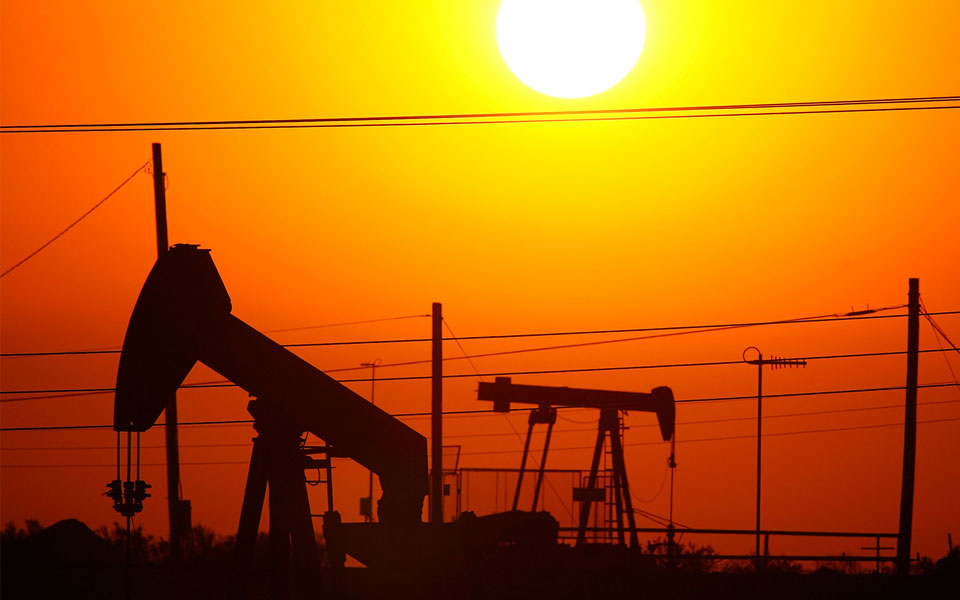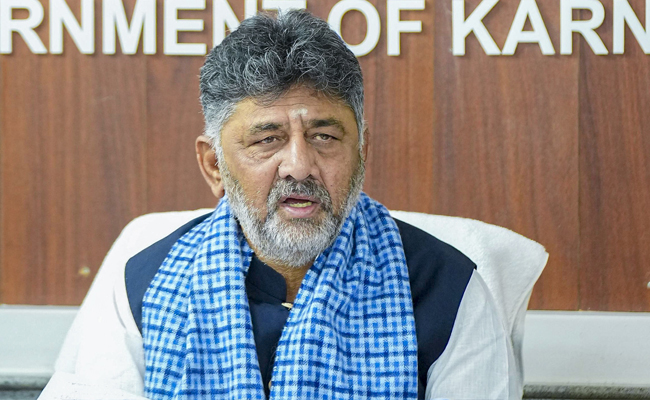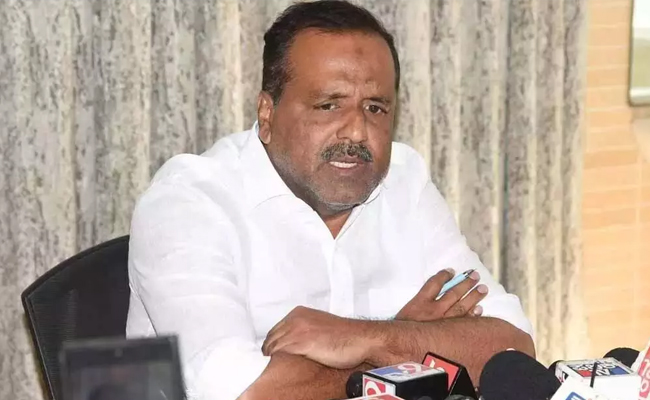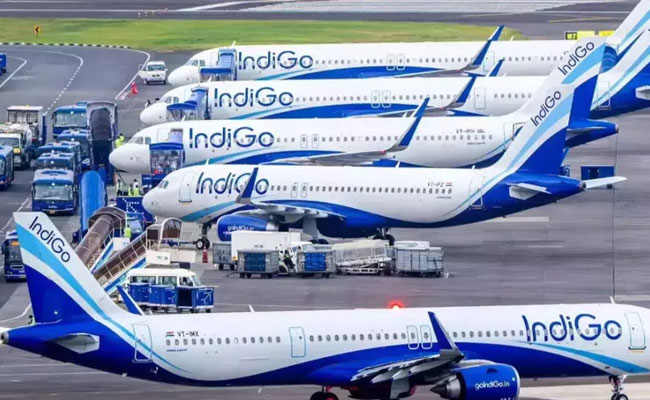Dubai, Nov 11 : Major oil producers meet in Abu Dhabi on Sunday to consider reverting to output cuts after a sharp slide in crude prices revived fears of a 2014-style crash.
Oil prices shed a fifth of their value in just one month after surging to a four-year high in early October, driven by a combination of factors centred on higher supply and fears of sluggish demand.
Brent crude dropped below USD 70 a barrel on Friday for the first time since April while the New York's West Texas Intermediate (WTI) sank below USD 60 a barrel, a nine-month low.
The United States has upped production of shale oil, while Saudi Arabia, Russia and others have raised supplies of crude amid signs of slowing demand.
The slide also comes during signs of a softer-than-expected impact from US sanctions on Iran oil exports.
"Prices have been falling amid a continued rise in crude supplies from big producers, such as Saudi Arabia, Russia and the US, more than compensating for lost Iranian barrels," Forex.com analyst Fawad Razaqzada told AFP.
"With the Iranian sanctions not being as severe as initially feared, officials from the OPEC and non-OPEC producers may discuss at the weekend the need to bring compliance back down towards the 100-percent level or risk another 2014-style slide in prices," he said.
Energy ministers of top producers Russia and Saudi Arabia will join other OPEC and non-OPEC officials for the meeting of the Joint Ministerial Monitoring Committee, which oversees production levels.
The world's second and third crude producers -- after they were overtaken by the United States thanks to shale oil -- Russia and Saudi Arabia are the core of an alliance of producer nations that succeeded in solidifying oil prices after the 2014 crash.
Through large production cuts starting at the beginning of 2017, they managed to push up oil prices from below USD 30 a barrel to over USD 85 a barrel in October, strongly improving their revenues.
But the producer nations eased the output cuts in June after signs of a tight market and higher prices, allowing hundreds of thousands of extra barrels into the market.
Saudi Arabia raised its production from around 9.9 million barrels per day in May to around 10.7 million bpd in October, according to Energy Minister Khalid al-Falih.
Kuwait, Iraq, Russia and the United Arab Emirates also boosted their output.
Cailin Birch, analyst at the Economist Intelligence Unit, said a slowing oil demand is beginning to appear in China, the world's largest importer of crude oil.
"The recent drop in oil prices reflects a combination of factors. For one, signs of slowing oil demand are beginning to appear; the rate of GDP growth in China is beginning to ease," Birch told AFP.
The meeting, which will also be attended by the oil ministers of Kuwait, Venezuela and host nation the UAE, is not due to make decisions but will most likely send signals.
The JMMC, a technical committee, is expected to make important recommendations on production cuts to a key ministerial meeting in Vienna next month for the OPEC and non-OPEC producers.
Commerzbank, Germany's second-largest lender, said Friday oil producers must act to prevent a free fall of prices.
"If they fail to signal any intention to reverse the latest increase in production, oil prices threaten to slide further," the bank said in a note.
Let the Truth be known. If you read VB and like VB, please be a VB Supporter and Help us deliver the Truth to one and all.
Mangaluru (PTI): A high-level committee constituted by the Karnataka government to study the framework adopted by Andhra Pradesh for recognising Urdu as a second official language has submitted its report, backing the state’s move to accord similar status to Tulu.
The six-member panel, headed by K M Gayatri, former Director of the Kannada and Culture Department, examined the procedures followed by the Andhra Pradesh government before granting second official language status to Urdu, officials said on Wednesday.
The committee undertook a field visit to the Andhra Pradesh Secretariat on January 19 and 20 and held consultations with senior officials to understand the legal provisions, administrative mechanisms, and implementation benchmarks involved, they said.
The panel also included Tharanatha Gatti Kapikad, president of the Karnataka Tulu Sahitya Academy, in an advisory capacity.
The report, along with a detailed note outlining Tulu’s historical, linguistic, and cultural significance, was submitted to J Manjunath, Secretary, Kannada and Culture Department, at Vikas Soudha here.
According to official sources, the study was aimed at gathering inputs to help Karnataka frame criteria and procedural guidelines if it decides to grant second official language status to Tulu.
Senior officials present at the submission included B S Manjunath Swami, Director of the Kannada and Culture Department; representatives of the Law Department and the Personnel and Administrative Reforms Department; and office-bearers of various state academies.
Tulu is predominantly spoken in the coastal districts of Dakshina Kannada and Udupi, and in parts of Kasaragod in neighbouring Kerala.
The demand to accord it second official language status in Karnataka has been raised by cultural organisations for several years.





